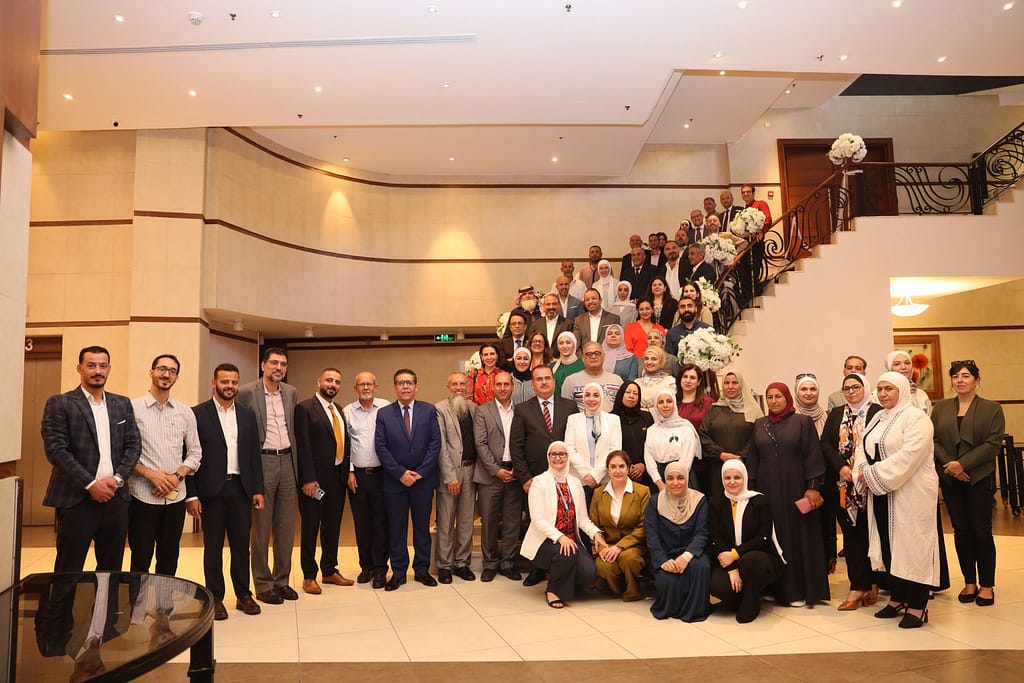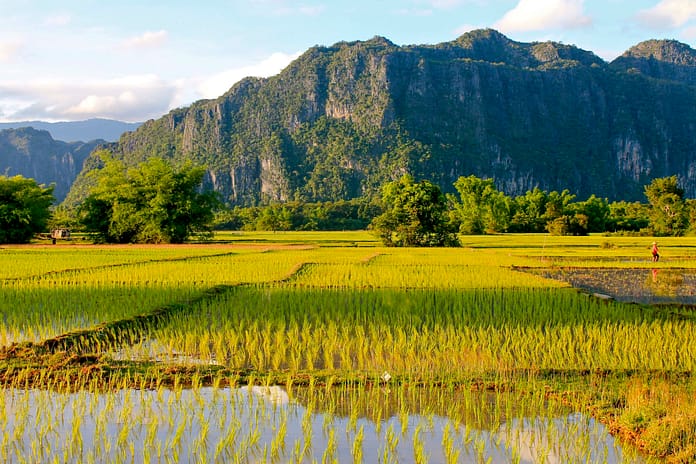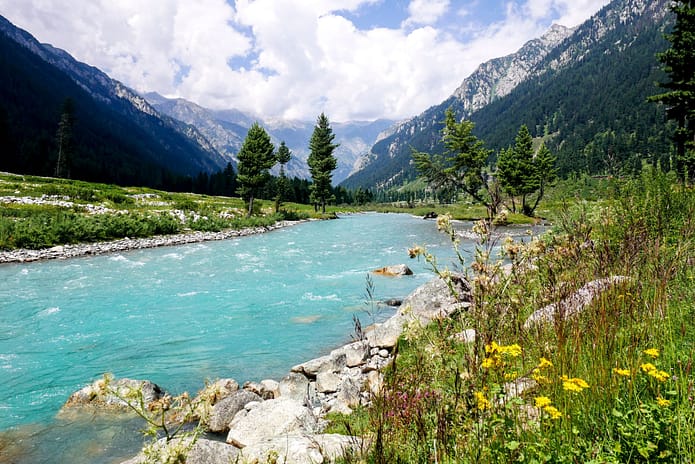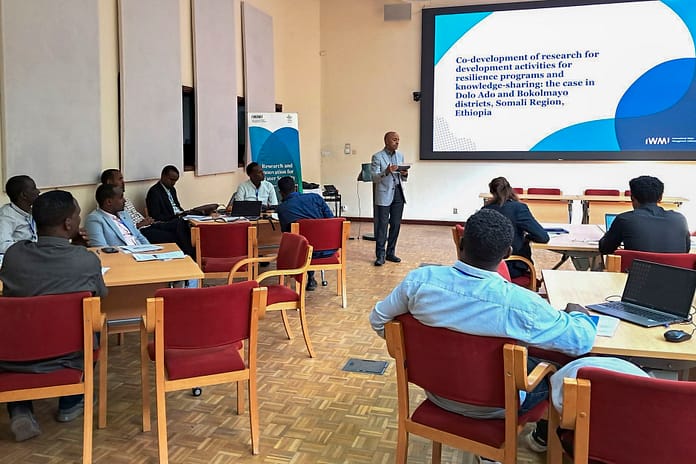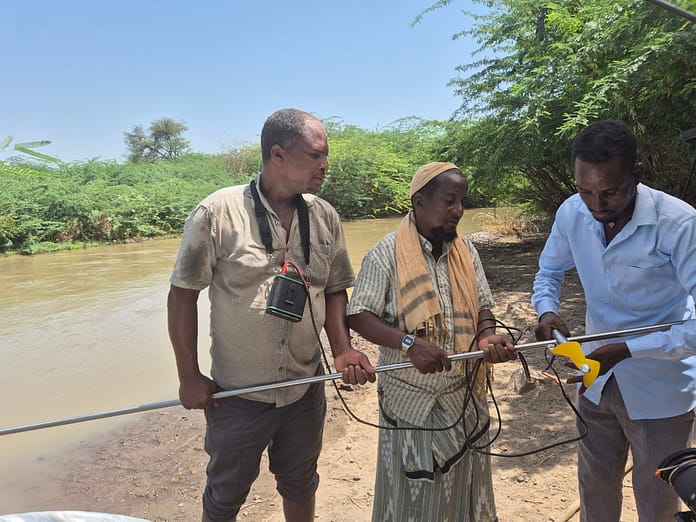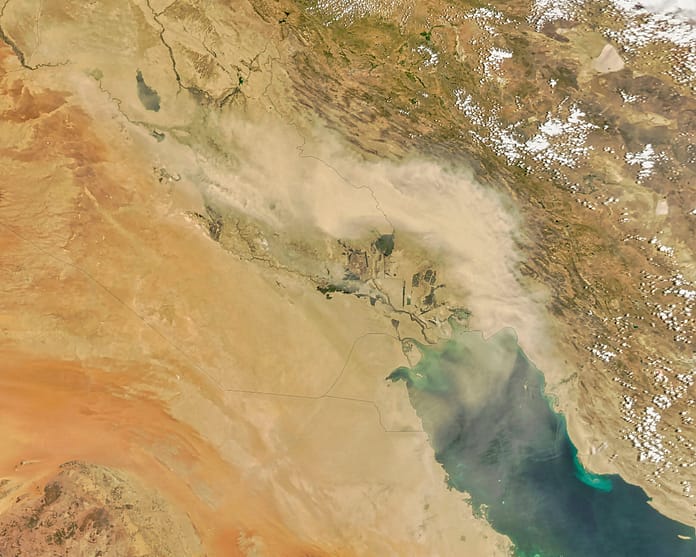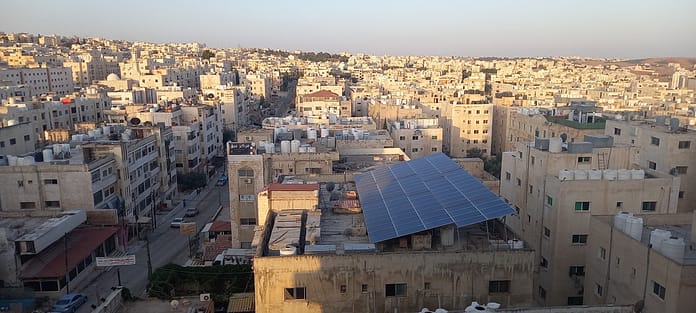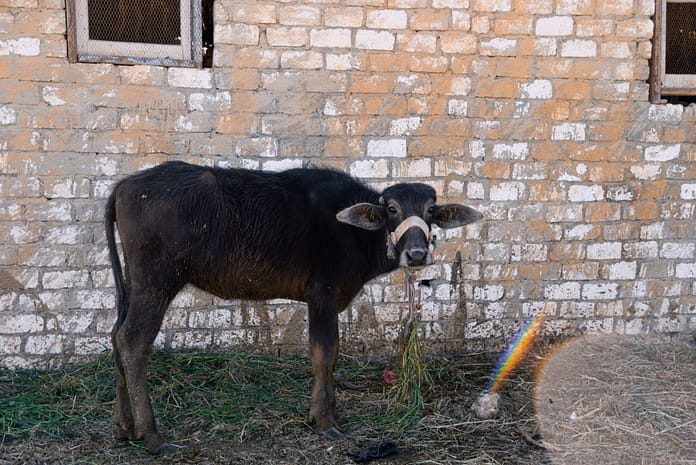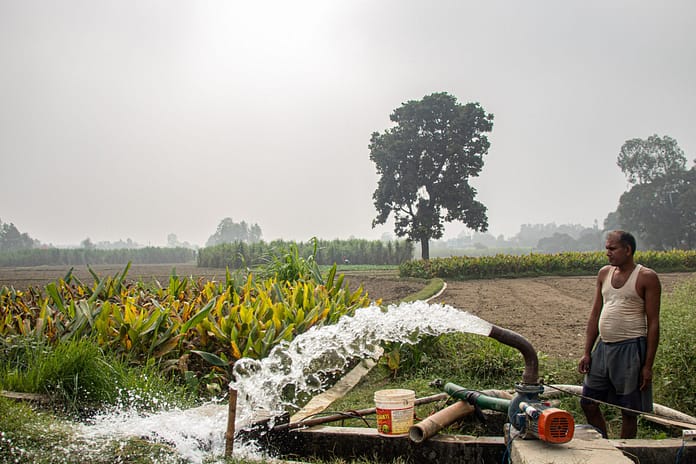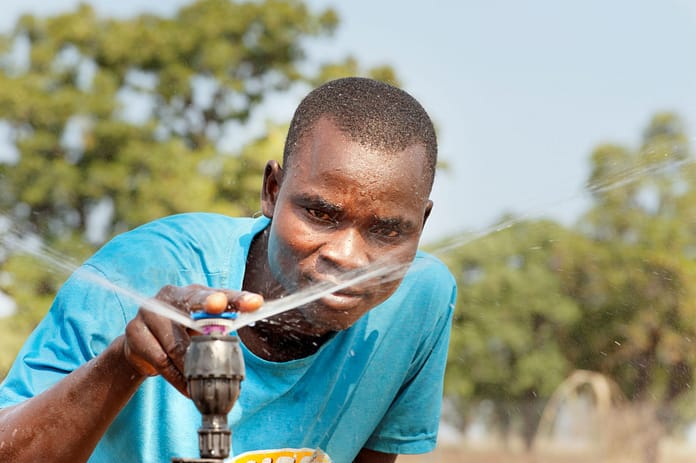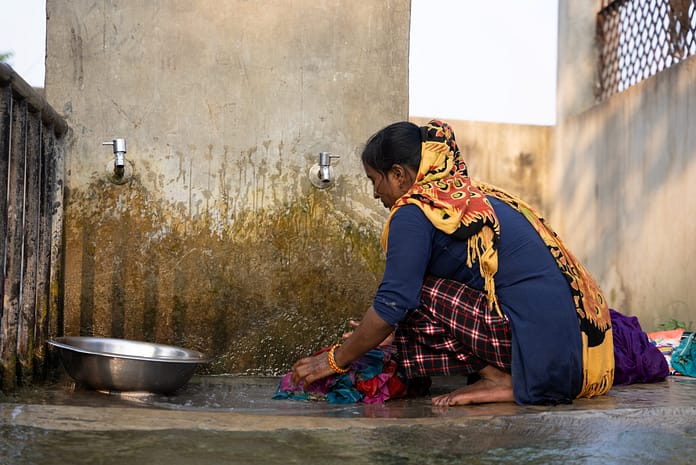Walking through the valleys of Jordan’s Wadi Seer, it is easy to imagine the past — clear springs flowing into fertile fields and terraces of olives and figs, sustaining generations of farmers. But in recent decades, rainfall has declined, competition for water has intensified, irrigation canals have degraded, and productivity has fallen, threatening both livelihoods and the community’s deep connection to the land and springs.
The International Water Management Institute’s (IWMI) Al Murunah project, funded by the UK Foreign, Commonwealth and Development Office (FCDO), is beginning to change that story.
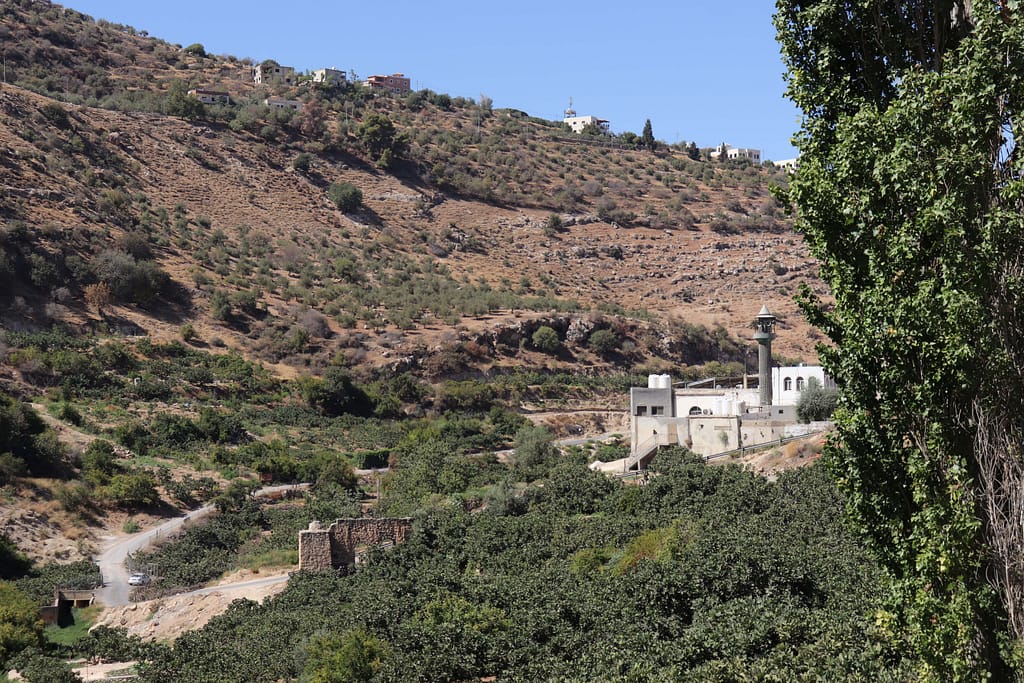
Small steps, big impact
The sight of water flowing freely through restored canals once again is striking, already benefiting more than 1,000 people in the area. What makes the pilot in Wadi Seer truly powerful is the transfer of technology to communities, coupled with the partnership model. Farmers are adopting drought-resistant crops and modern practices, while women’s cooperatives are taking the lead in processing, packaging and marketing local produce. At the same time, community groups are working closely with municipalities and government agencies, supported by strong inter-ministerial commitment. International partners are also playing a crucial role by providing both technical expertise and financial backing.
The interventions may be modest, but they are systematic and together they transform resilience: boosting water productivity, sustaining family incomes and empowering local leadership.
Emphasizing the impact of IWMI’s Al Murunah project on local communities, Laila Shabsoogh, Chairperson of the Wadi Seer Springs Cooperative that represents community members and farmers, said, “The Al Murunah project has greatly supported farmers by enabling them to irrigate their lands, bring their produce to market more quickly and keep pace with other farmers during the season.”
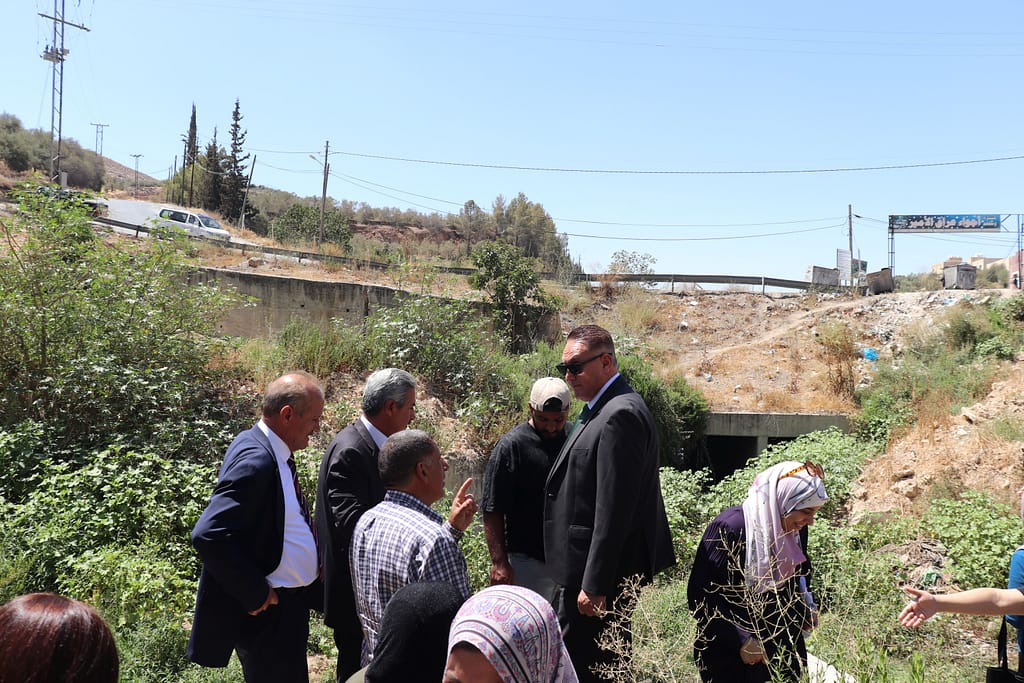
Encoding a successful project into policy
On 31 August 2025, government leaders, development partners and community representatives came together in Amman, Jordan for the first National Policy Dialogue on Resilient Nature-Based Water Solutions. The message was clear: Jordan cannot meet its water and climate adaptation challenges with engineering alone, so solutions must be rooted in both nature and people.
The very next day, that message came alive when Jordan’s Minister of Environment, Ayman Suleiman, visited the springs, farms and canals of Wadi Seer. Side by side with farmers, women leaders and cooperative members, he saw firsthand the positive impact on water supply, quality, and farms of the rehabilitated springs, restored irrigation channels, and revival of traditional crops.
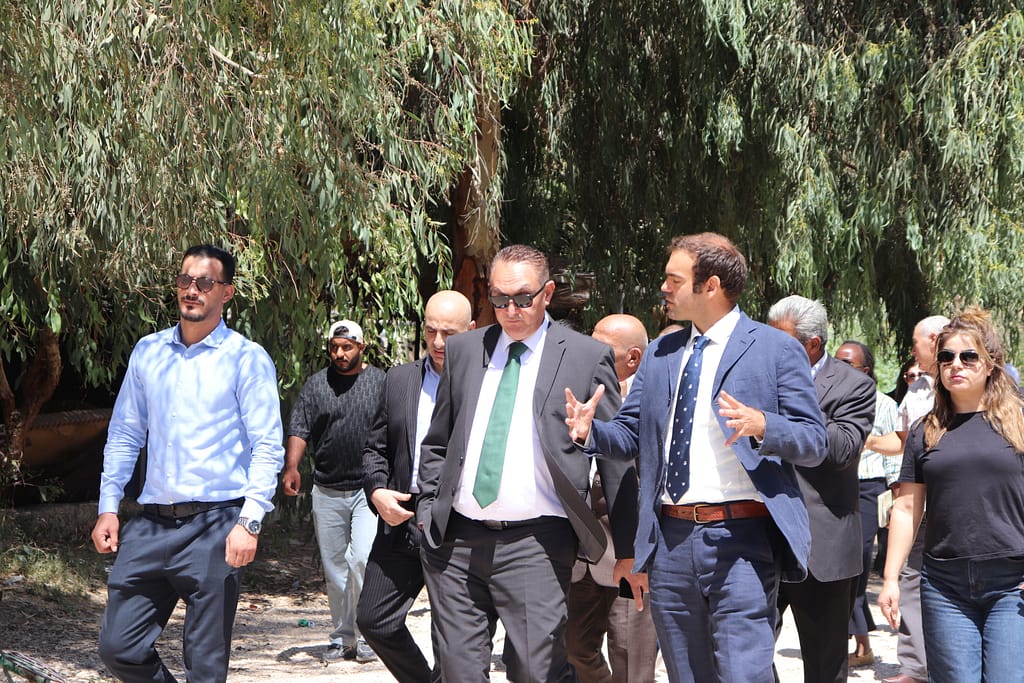
Speaking with local news media on the project’s capacity for scale, Suleiman said, “The Wadi Seer experience proves that community and government cooperation can deliver real results with modest budgets. These initiatives must be replicated across all municipalities, integrated into Jordan’s Economic Modernization Vision and scaled to meet the country’s climate and water challenges.”
Head of the Economic and Prosperity Team at the British Embassy in Amman, Yolanda Chakava, highlighted the importance of international partnerships, saying, “Our partnership with the Government of Jordan on Al Murunah is a great example of scalable, community-driven collaboration for nature-based climate solutions in Jordan. It addresses water and livelihood challenges while empowering women and youth, enhancing access to adaptation finance and promoting the use of nature-based solutions.”
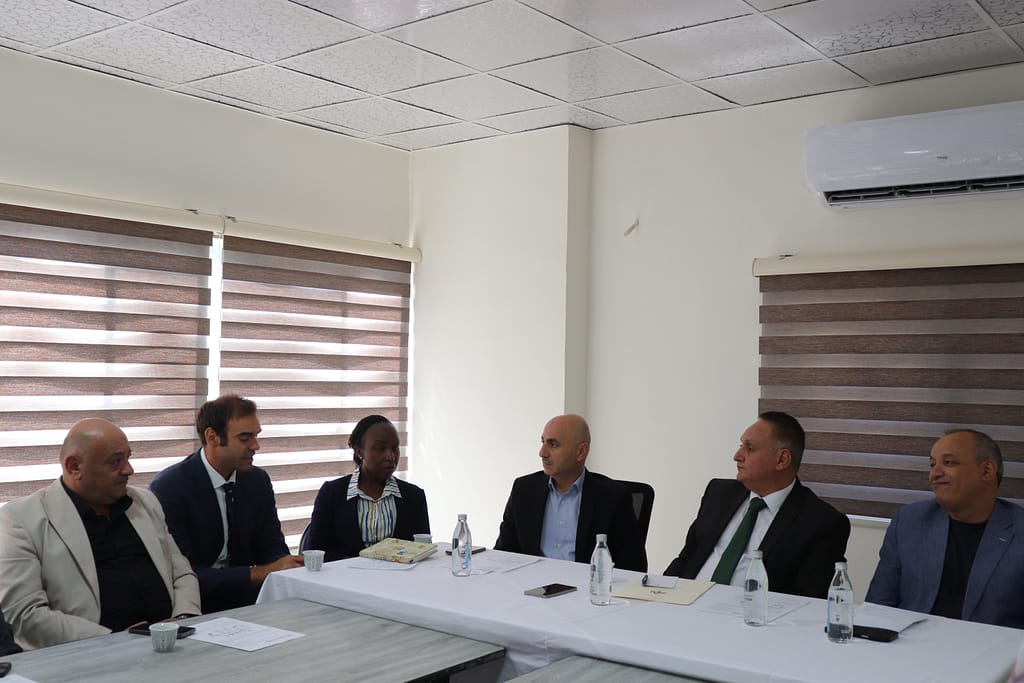
From local success to national vision
At the policy dialogue, representatives from ministries such as the Ministry of Water and Irrigation, Agriculture, Environment and Local Affairs, alongside financiers like the Cities and Villages Development Bank and the Agricultural Credit Corporation, discussed how to turn local successes into national policy and investment pathways.
Already, the project’s lessons are poised to inform the update of Jordan’s Nationally Determined Contributions (NDC 3.0), which directs climate change commitments and funding, and will also support the delivery of the National Water Strategy (2023-2040) and the Economic Modernization Vision 2033.
Speaking of the project’s impact, Stephen Fragaszy, IWMI Al Murunah Project Lead, said, “At the national level, our work in Wadi Seer is modest but important because it shows what is possible. Now we are working with the community to ensure long-term sustainability, as well as with the government and other partners to embed these lessons into policies and financing systems so they can be scaled across Jordan.”
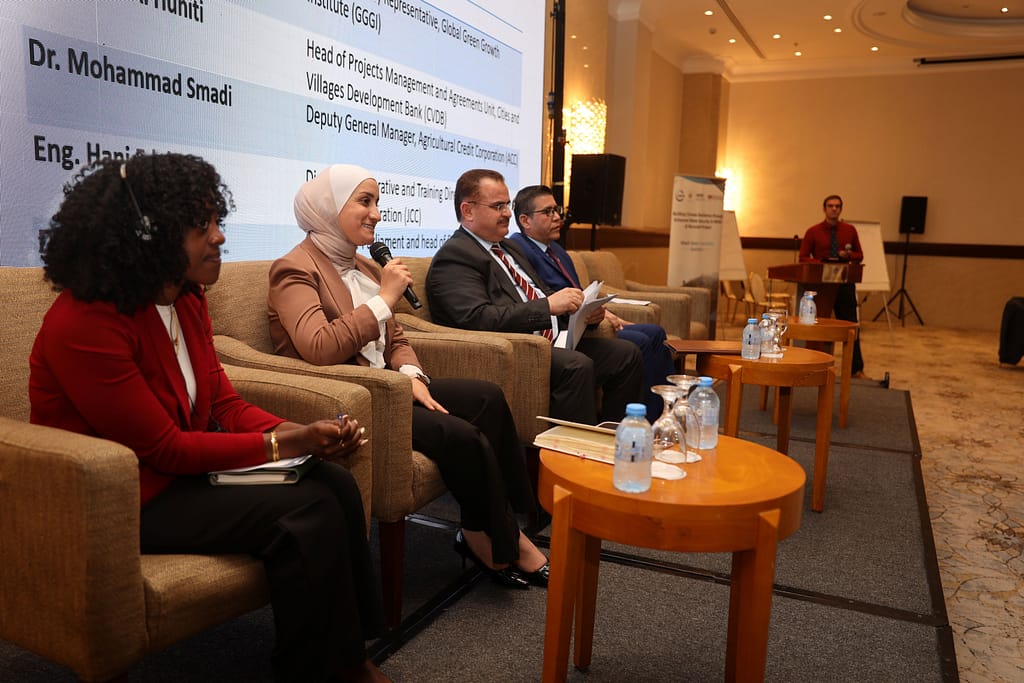
An invitation to scale up
Wadi Seer has been recognized in Jordan as a model of resilience, and rightly so. But models only matter if others replicate them. The next step is mobilizing resources and partnerships across governments, local organizations and international actors to take this approach beyond a single valley. So that more springs across Jordan can flow again, and communities can face the future with confidence.
IWMI’s Al Murunah project shows that resilience is not an abstract concept — farmers, women leaders and local innovators are building it now. Bold investments in resources and energy are needed to scale these successes into a nationwide movement.
The invitation is open to governments, donors, private sector partners and communities across the region. Join IWMI in turning Wadi Seer’s story into Jordan’s future — where people work with nature to promote water security, climate resilience and sustainable growth.
